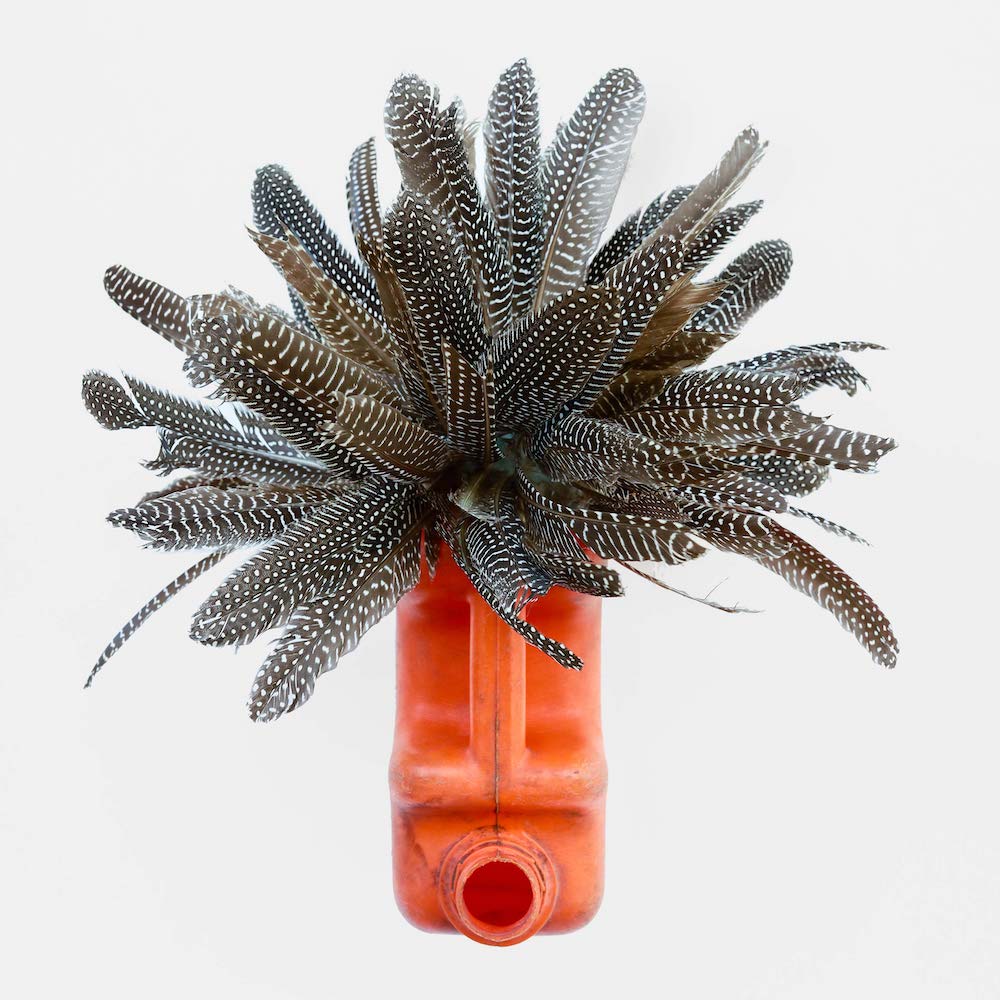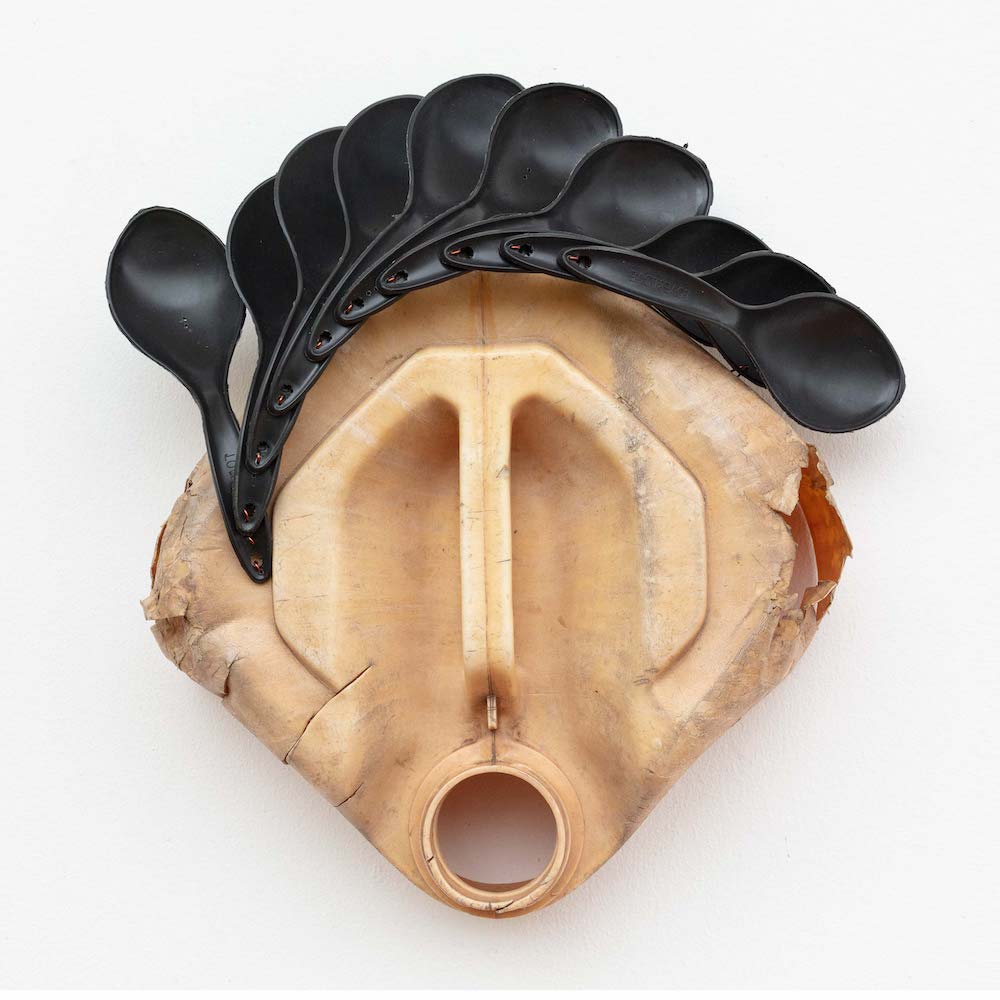Romauld Hazoumè: Carnaval | October Gallery
Like Antoni Tàpies, featured on here last week, Romauld Hazoumè uses found objects in his work. But the two artists could hardly be more different. As this show highlights, Hazoumè is droll, down to earth and humanist where Tàpies is sober, grand and ethereal.
This artist, who lives and works in Benin, uses discarded oilcans, bottles, feathers and other throwaway objects to produce what he calls masques bidons (repurposed masks). The title of the exhibition’s a clue to the kind of atmosphere Hazoumè wants to create: just like at a carnival parade, the masks shouldn’t just look good, they also provide a kind of subversive social commentary.
 Pintade (2022)
Pintade (2022)
That helps explain why some of these plastic bottle-and-feather masks are named after African leaders. Others have a more down-to-earth inspiration. “My masks represent impromptu impressions of people I know of and have seen; some of them might even be people you may well recognise!” the artist adds.
Hazoumè can afford to take this easy-going attitude to inspiration because the inspiration is local to him. The fact he’s from west Africa gives him more licence to play with the meaning of these masks. This show would hit very different, were it from an artist with roots from anywhere else in the world. It would seem like a throwback to the reductive appropriation of African mask imagery from the Dadaists and others, reducing important relics to exotic decoration.
 Napo (2022)
Napo (2022)
But while such weighty inferences can be side-stepped, they can’t be escaped. After all, the masks that clearly inspired Hazoumè were originally objects of religious reverence, and repurposing their meaning, using plastic cans and spoons, might seem a bit off to a local audience. No matter where the artist’s from. Hazoumè himself seems conscious of a potential backlash, and insists the masks “in no way resemble those originally powerful African masks used for ceremonial purposes”.
Well, they kind of do resemble them - and isn’t mocking the sacred part of the subversive thrill of the carnival? Isn’t the artist’s use of oilcans itself symbolically loaded, given the ongoing exploitation of the region’s oil reserves both by global energy companies and corrupt local politicians?
Or maybe that’s a misreading on my part as an outsider. It’s actually carnival time, these battered and now repurposed bottles carried something harmless rather than oil, originally - and I should just let the party continue.
Either way, this is a fascinating collection, put together with a pleasingly light touch. For the artist, it’s well worth getting in trouble for.
Romauld Hazoumè: Carnaval is at October Gallery (London). 06 October - 26 November 2022